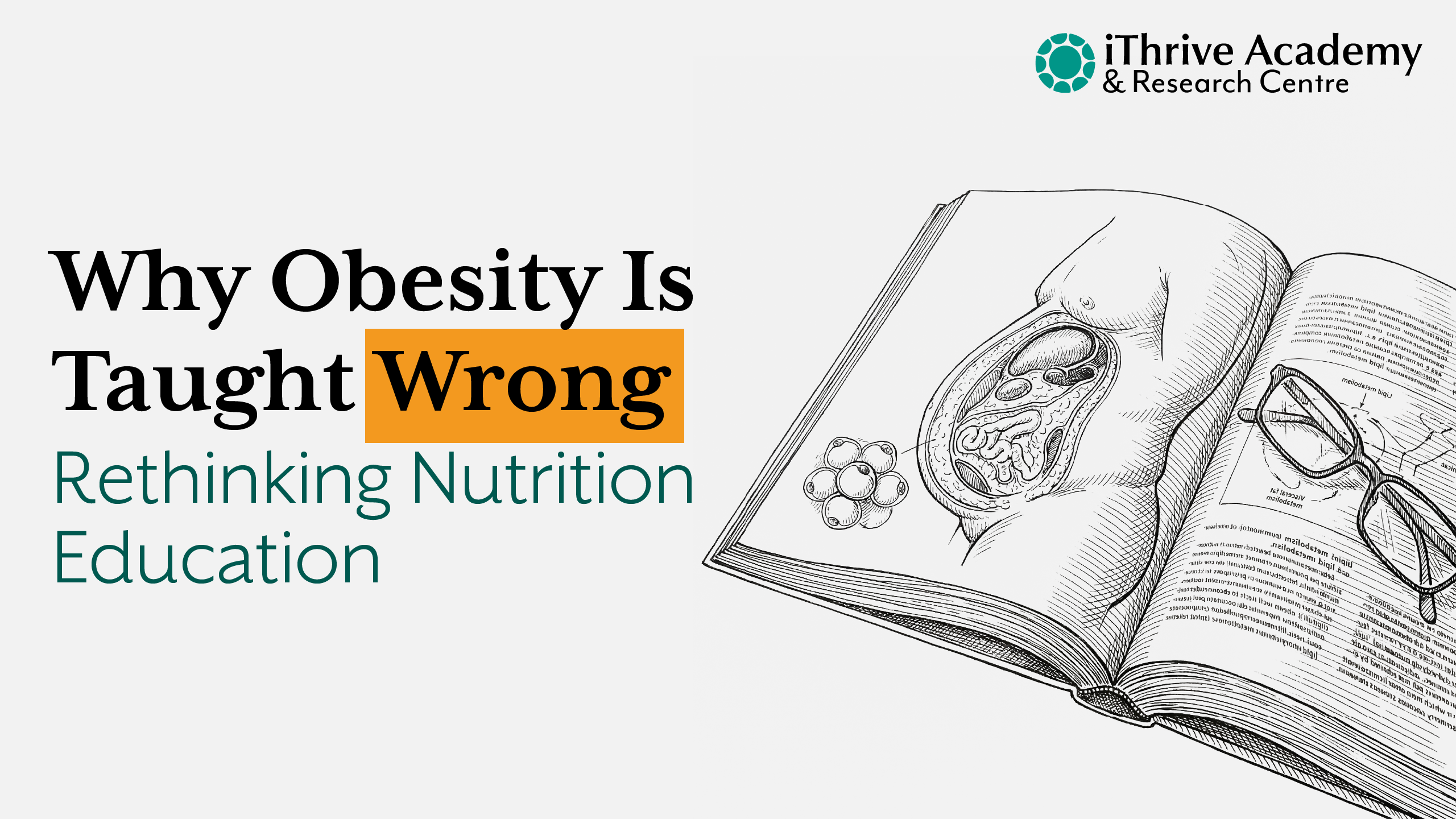Introduction - Why this question deserves more than a YES or NO
You eat your veggies. You’re mindful about your meals. Maybe you even blend a smoothie every now and then. So, do I really need supplements?
It’s one of the most common and misunderstood questions we hear in the world of wellness. On one hand, we’re told to “just eat real food.” On the other hand, your feed is filled with influencers swearing by magnesium for good sleep, collagen for glowing skin, or creatine for muscle strength. So who’s right?
The truth is: supplements aren’t magic bullets, but they’re also NOT A SCAM. When used with intention, they can be powerful tools to correct nutritional deficiencies, optimize energy, boost immunity, support gut health, and even help you get better sleep or gain muscle with less burnout.
But to unlock those benefits, you need to understand when, why, and what kind of dietary supplements actually work for your body.
Let’s unpack the real purpose of supplements, the different types available, and what a functional nutritionist would want you to know before reaching for that bottle.
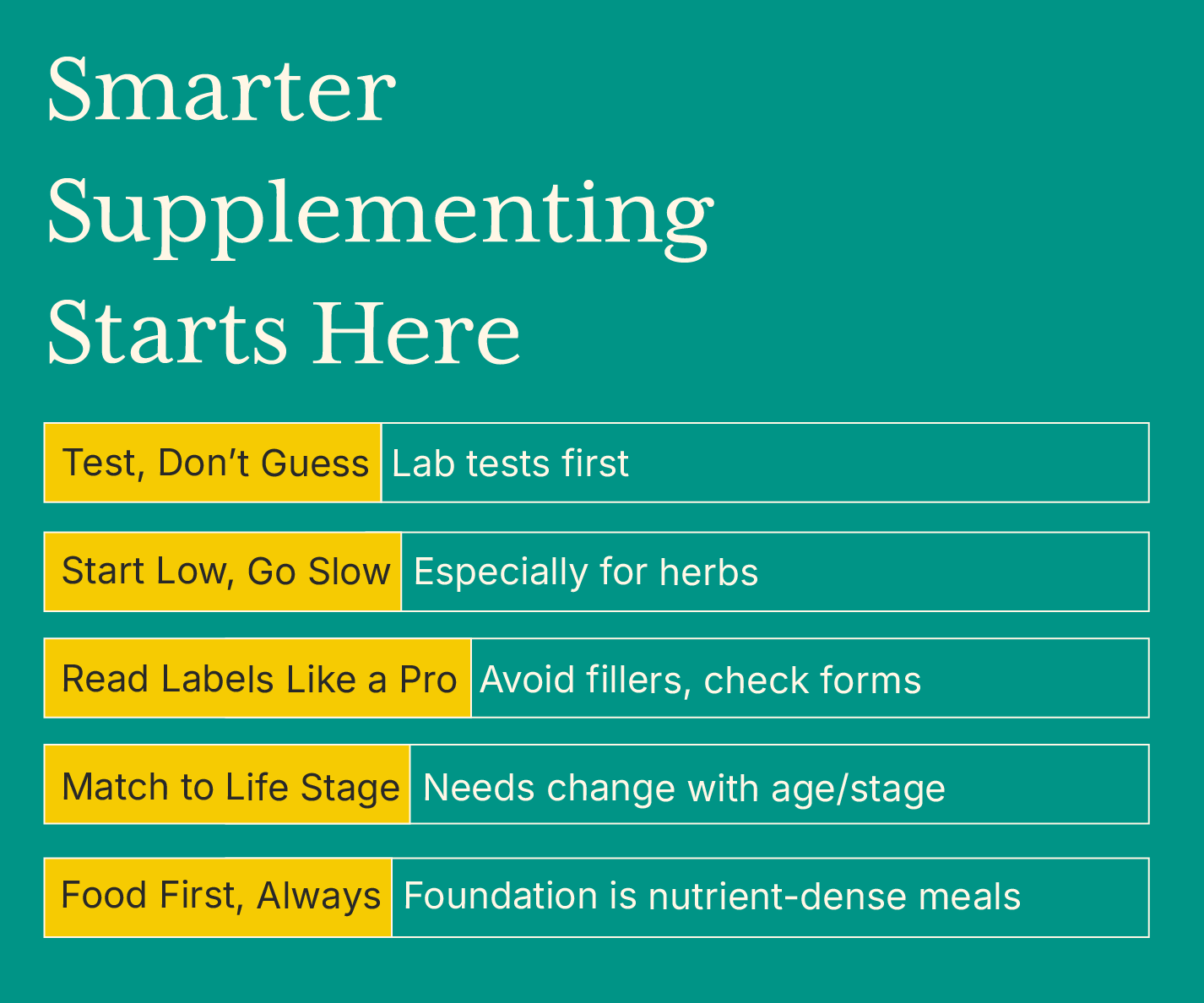
1. What supplements are - and What they’re not
1.1 Supplements Are Support, Not Substitutes
Let’s set the record straight. Supplements are meant to “supplement” a healthy diet, not replace it. Think of them as nutritional backups or reinforcements, not your starting lineup.
No supplement can outrun a diet overloaded with processed junk. But even the cleanest eaters can face nutrient gaps due to stress, poor absorption, environmental toxins, or modern farming practices. That’s where the right dietary supplement steps in.
1.2 Why Nutritional Deficiencies Still Happen (Even With “Healthy” Diets)
- Modern soil is often depleted of key minerals.
- Chronic stress depletes B vitamins, magnesium,vitamin C and more essential nutrients..
- Gut imbalances can reduce nutrient absorption.
- Certain life stages like pregnancy, menopause, or intense athletic training spike demand.
- Presence of toxins in the environment can impair nutrient absorption and create deficiencies.
The result? Even people eating “well” can end up low on essentials like iron, zinc, vitamin D, omega-3s, B12, or magnesium.
2. Types of Supplements
There’s a sea of pills, powders, gummies, and capsules out there. Let’s demystify the most common categories and when they might make sense.
2.1 Vitamins and Minerals
These are the classics like vitamin D, vitamin C, B-complex, zinc, and magnesium.
They help support everything from immunity to sleep, mood to metabolism.1
It works best for people with identified deficiencies confirmed via lab tests, stressful lifestyles, or those with poor intake and/ or absorption.
2.2 Protein Powders
Protein isn’t just for gym-goers - it’s the building block your body leans on for repair, hormones, immunity, and even stable blood sugar. While whole foods remain the first choice, protein powders can be a practical support when life gets hectic or you’re not able to meet your needs through meals alone. At iThrive, we often recommend high-quality options like collagen or essential amino acids (EAAs), especially for individuals with higher demands or those recovering from illness.
2.3 Creatine
One of the most researched fitness supplements out there, creatine supports short-burst energy, muscle strength, and even cognitive function.2
Proven to work best for people focused on performance, building strength, or managing fatigue.
It’s often found in discussions about the best supplements for muscle gain and with good reason.
2.4 Probiotics & Gut Support
A balanced gut is essential for everything including skin, mood, digestion, and immunity.
Probiotics, L-glutamine, or enzymes can be strategic supplements for gut health and restoring microbial balance.
It will be best suited for those with digestive issues, skin flare-ups, bloating, or past antibiotic use.
2.5 Sleep and Mood Support
Struggling to wind down at night? Functional options like magnesium glycinate, L-theanine, or adaptogens like ashwagandha support relaxation and good sleep without habit-forming effects.3
Best for: High-stress individuals, night owls, or anyone with irregular sleep cycles.
2.6 Weight Metabolism Support
We’re not talking fat burners. The best supplements for weight loss support metabolism indirectly by reducing inflammation, supporting thyroid function, or balancing blood sugar. Think: berberine, inositol, or chromium.
Best for: Individuals addressing underlying root causes of stubborn weight.
2.7 Supplements for Immune System Support
Your immune system is your body’s frontline defense, and certain nutrients can make a real difference in how resilient it is. Vitamin D3 is essential for activating immune cells and is often low in people who spend little time in the sun. Zinc helps your body fight infections and supports wound healing. Elderberry has been traditionally used to shorten the duration of colds and flu, while quercetin works as a natural antioxidant that may calm inflammation. Probiotics, on the other hand, nurture gut health - which is where 70% of your immune system resides. These can be especially supportive for those with recurrent infections, autoimmune conditions, or recovering from illness.
3. iThrive Academy: Where you learn to think like a Functional Nutritionist
So, you’re starting to see how complex this world of supplements can be, right?
This is where most people feel overwhelmed, unsure, and frankly, ready to give up or Google whatever’s trending.
But at iThrive Academy, we teach you how to go beyond the noise.
Empower: Tools, Confidence & Clarity
We equip learners with the frameworks to confidently assess root causes, identify real nutrient needs, and select supplements that truly serve health, not just follow fads. Whether you're supporting your own wellness or aiming to guide others, our programs help you take charge with science-backed precision.
Pioneering: Relearn What Truly Heals
We break away from the conventional. You’ll unlearn outdated diet charts and rethink supplements not as a quick fix but as a tool aligned with functional medicine and bio-individual needs. This is where you stop guessing and start understanding.
Transform: Learn to Heal & Lead
Our students don’t just memorize vitamin charts. They learn how to lead change. From crafting personalized supplement protocols to decoding the root causes behind sleep issues, gut problems, or chronic fatigue, our iCFN and short courses create true transformation in practice and in lives.
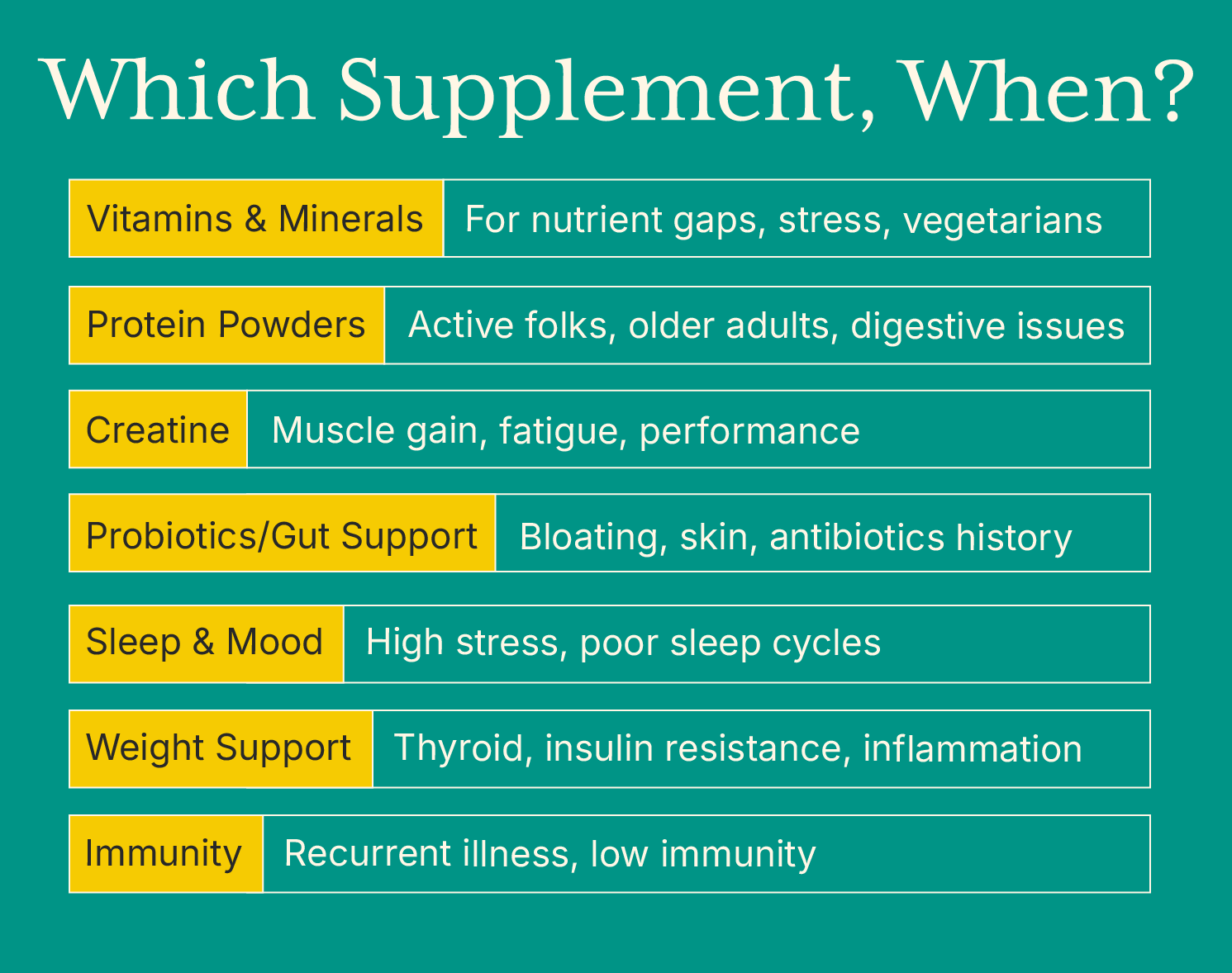
4. 5 Practical tips before taking any supplement
Supplements can be powerful. But how you use them makes all the difference.
1. Test, Don’t Guess
Before buying anything, consider a functional lab test to uncover real nutritional deficiencies. It helps you invest smarter and get actual results.
2. Start Low, Go Slow
Especially with herbs, adaptogens, or gut supplements, do begin with the lowest dose and track your body’s response.
3. Read Labels Like a Pro
Look beyond the front. Check forms such as magnesium oxide VS. glycinate, avoid unnecessary fillers, and prefer third-party tested brands.
4. Match to Your Life Stage
Pregnant? Athletes? Post-menopause? Your vitamin and mineral needs change. Choose dietary supplements that support your current physiology.
5. Food First, Always
A dietary supplement is just that - a supplement. Your foundational fuel must come from whole, nutrient-dense meals.

Conclusion - So, do you really need supplements?
Maybe. Maybe not. But what you need more than anything is clarity.
Because supplements can work. When you understand your body, choose the right tools, and know how to apply them.
That’s what we teach at iThrive Academy. Not just what supplements are, but how they work, when they’re needed, and for whom.
So if you're ready to unlearn the outdated, relearn what heals, and transform lives through food and functional tools, your journey STARTS RIGHT HERE.
Reference
- McCabe, D. and Colbeck, M., 2015. The effectiveness of essential fatty acid, B vitamin, Vitamin C, magnesium and zinc supplementation for managing stress in women: a systematic review protocol. JBI Evidence Synthesis, 13(7), pp.104-118.
- Kaufman, M.W., Roche, M. and Fredericson, M., 2022. The impact of supplements on sports performance for the trained athlete: a critical analysis. Current sports medicine reports, 21(7), pp.232-238.
- Team, H.Y.N.S., Natural Sleep Aids: Discover the Best Sleep Supplements in 2023.






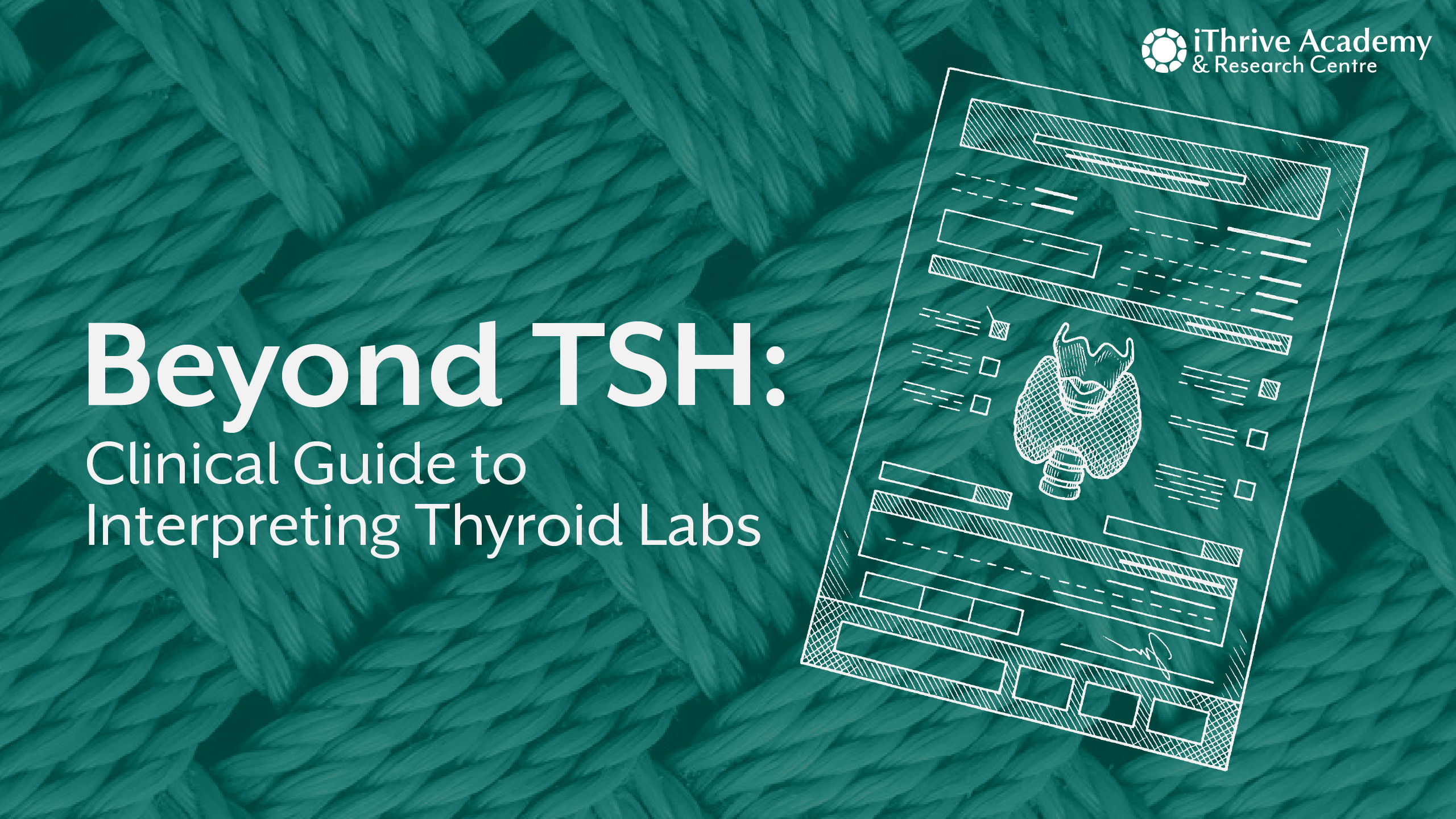


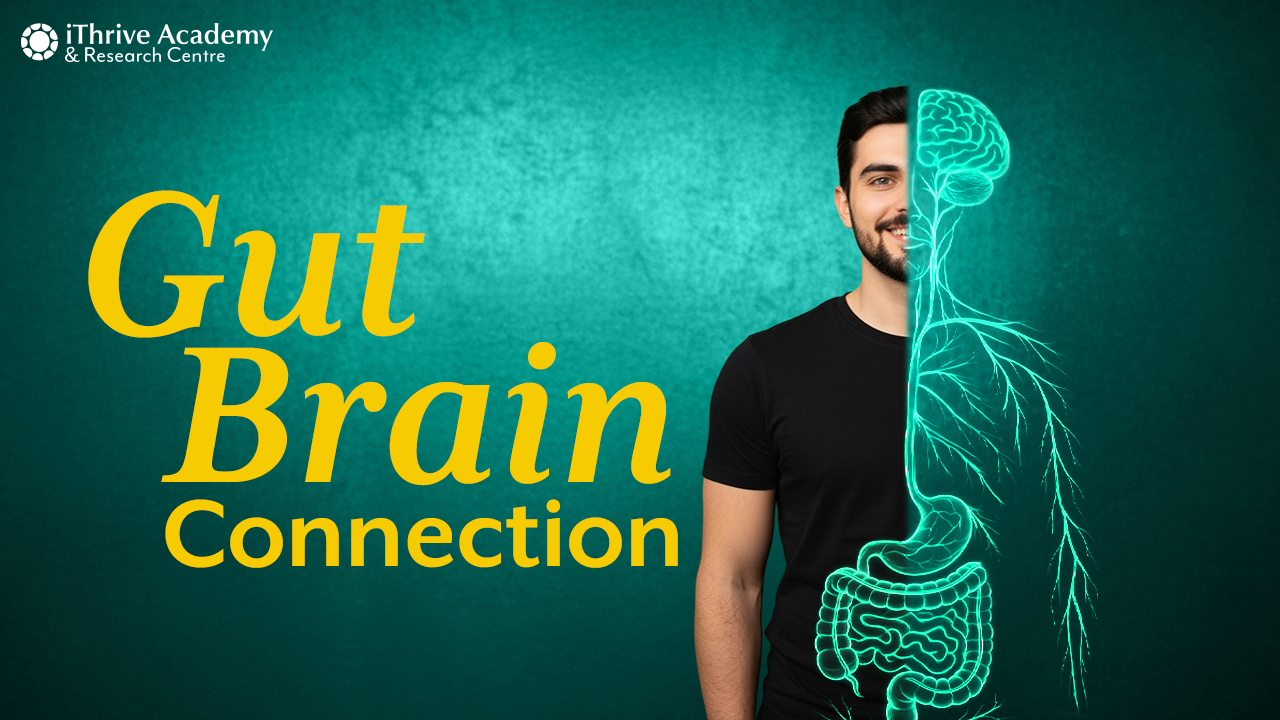


.jpg)



